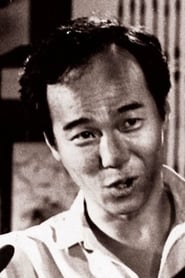 Pao Hsueh-Li
Nanjing, Jiangsu, China
Pao Hsueh-Li
Nanjing, Jiangsu, China

Born in Nanjing and a native of Jiangsu, Pao went to Taiwan in 1949. While in Secondary school, he worked part-time in the evenings at the film processing studio of Taiwan Motion Picture Studio. Upon graduation, he continued to work at the company as an assistant cinematographer for six years and later switched to Lucky Star Film Co Ltd to work as a cinematographer for three years, where he shot many Taiwanese-dialect films. In 1966, when Lo Chen went to Taiwan for the location shooting of Too Late for Love (1967), Pao assisted him and gained his recognization. Pao then went to Hong Kong the following year and joined Shaw Brothers (Hong Kong) Ltd. He first worked as a cinematographer at Shaws, responsible for shooting Lo Chen, Griffin Yue Feng and Chang Cheh's films. Some of the major works included Chang Cheh's The Trail of the Broken Blade (1967) and Golden Swallow (1968); Griffin Yue Feng's Rape of the Sword (1967), Spring Blossoms (1968) and The Silent Love (1971). Pao was acclaimed for his meticulous camerawork and the way he captured the sentiments of the characters. Recommended and encouraged by Chang and Yue, he began his directorial career in 1970. His first film was a horror action film shot in the same year, Finger of Doom (released in 1972), followed by Oath of Death (1971). He directed ten and plus titles for Shaws, of which he co-directed six of them with Chang, including the remarkable The Boxer from Shantung (1972) and Man of Iron (1972). He was deeply influenced by Chang and, like him his forte was action films.
In 1977, Pao left Shaws and returned to Taiwan to make wuxia films Blooded Treasury Fight (1979) and The Eight Escorts (1980) for companies such as Yen Sheng Film. His wife, Chin Shu-mei, was a scriptwriter for Shaws when he was working there. The two of them later founded Yu Fung Film Company in Taiwan, and produced films directed by Pao, including Heroic One (1981) and Night of the Assassins (1981). (From Hong Kong Film Archive)






















































